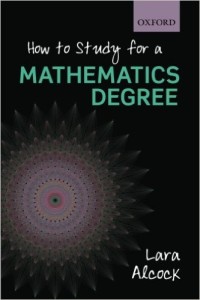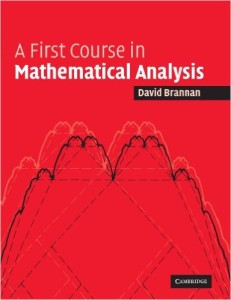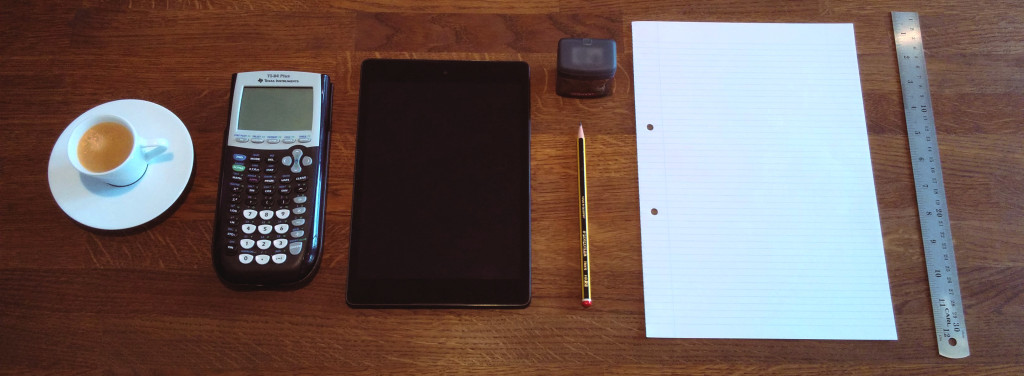Assignment writing seems to be a very large part of studying a part-time degree in Mathematics. For my first module I hand-wrote every assignment, but with my handwriting being less than perfect I wasn't entirely happy with the neatness of the end result.
I tried numerous other ways of writing my assignments but the formatting of equations always proved to be a headache. After exploring a couple of avenues (Open Office with equation editor, and Google Docs), I decided to settle on LaTeX.
LaTeX is a formatting (or rather, typesetting) language, much like HTML in a way. For example, the following:
![]()
is written in LaTeX as follows:
f(x) = x^2
Which is nice. Of course this is a simple example, and the learning curve involved in producing your first 18-page assignment with it can be rather steep.
What I'd like to do every now and again is post a clever little bit of LaTeX I discover that gets me out of a hole. With any luck, after a handful of posts, LaTeX will become a lot less of a mystery.
My operating system of choice at the moment is Linux Mint. I like it because it's the only version of Linux I've ever installed that just worked straight after installation. No sound problems. No problems with network access. Everything worked.
As such, I started out by trying to work out how to get LaTeX working in Linux Mint. It turns out that to install it, you can run this in a shell:
sudo apt-get install texlive-full
This installation command should work on any Debian-based release of Linux (Ubuntu, Mint, etc...). It will install all the necessary things you need to start writing in LaTeX, including the essential command:
pdflatex
which will do the hard work of compiling your hand-typed LaTeX tex files to beautiful pdfs.
I won't be writing much about Windows, as I don't use it a great deal these days, but if you want an equivalent you can search the net for something called MiKTeX. Any actual LaTeX formatting language I write will of course work on both Linux and Windows.
More LaTeX to come!



![Rendered by QuickLaTeX.com \[\pi\int_{0}^{\frac{\pi}{3}} \tan^{2}x\: dx - \pi\int_{-\frac{\pi}{6}}^{0} \tan^{2}x\: dx\]](https://adrianbell.me/wp-content/ql-cache/quicklatex.com-da7ffd512bb3e35c6b126266abc36735_l3.png)
